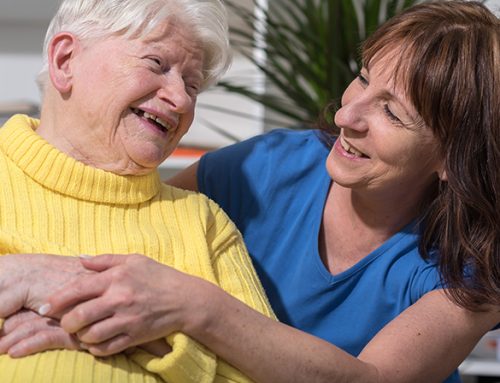According to a 2012 study in The Gerontologist, about one-third of 45- to 63-year-olds are single, most of whom have never married or are divorced. That’s a whopping 50% increase since 1980. What’s more, about 15 percent of 40- to 44-year-old women had no children in 2012 – up from about 10% in 1980. Nearly 1/4 of Americans over age 65 are or may become physically or socially isolated and lack someone like a family member to care for them. They are called “elder orphans.”
Living alone while aging is a reality. Some people outlive their spouses, and children may not be close. Living alone can be risky in illness. If you live alone, or you know someone who does, here are some points that you should consider:
(1) Are you happy living alone? You may want to consider other options, including moving to a senior apartment complex or assisted living center. If you do want to stay where you are, certain changes can make your life easier and safer as you grow older.
- You should have a telephone.
- Your home should have adequate basic security such as door and window locks and a door chain.
- Falls in the home are a common cause of injury among older people. Have your home checked for fall risks.
- Keep a stock of basic foods so that in an emergency you have three or four days’ supply.
(2) Keep a list of your family, close friends, and doctor’s telephone numbers in an obvious place so that people know who to contact in an emergency. In an emergency, the best people to help (and who may need your help) are those living nearby, so try to get to know your neighbors. Arrange a daily telephone call or a quick visit to or from someone nearby. This will ensure someone knowing daily if you are okay. Be sure to let them know if you plan to be away.
(3) Growing older without kids or a partner doesn’t mean you’re doomed – just as aging with kids and a partner doesn’t mean all’s clear. We’re all at risk for becoming isolated and becoming elder orphans. You could outlive your spouse or even your children, find yourself living far from your family, or wind up in the caretaker role yourself if a family member gets sick. Keep in mind that 69% of Americans will need long-term care, even though only 37% think they will.
(4) Plus, there’s no way around the natural physical and mental declines that come with age.
(4) Assess your personal situation. Talk about it openly with someone you trust. No partner or kids? How about meeting with a close friend, your doctor, a relative? There are also online estate planning programs that can help you organize information and help you with your plan.
(5) Can you age in place? If your golden years are imminent, look around your home to see what renovations (ramps, downstairs bedrooms, easy to use/read kitchen appliances) are necessary so you can stay put. Or, if you can’t, look for housing options that will meet your future needs.
As you age, treat yourself kindly. Have dreams and goals and objectives for the future. Many people fall prey to “I’m old, I’m old, I’m old.” No! If people assumed they were going to live the maximum life span of 122 years, they would look quite differently at their 70s!
The Terrace Assisted Living community offers four levels of affordable, supervised independent living. Contact us today to schedule a FREE tour! Or call us and ask for Sherry, our Admissions Liaison, to ask questions about our 20% off special for your first 3 months if you move in on or before Sep 30, 2017!






